Amherst, UMass authorities regroup after mass partying
| Published: 03-08-2023 4:12 PM |
AMHERST — Classes running later into the spring at the University of Massachusetts and graduation at the end of May for the first time in 14 years means many students will be staying in Amherst for more warm weather weekends.
Since the change in the spring semester to accommodate an extended winter session was announced last April, town officials and police and fire departments have been aware that this could add to the burden on public safety services — understanding that inclement conditions such as snow, rain and cold can be a valuable partner in combating large gatherings and neighborhood disturbances.
But the pre-St. Patrick’s Day events on Saturday, in which significant quantities of alcohol were consumed by college-age people — many through what are known as blackout rage gallons, or borgs — and thousands of people coming together in specific areas of town, are giving town and UMass officials renewed concerns. Particularly worrisome, they said, would be preventing the resumption of problematic events, such as the Hobart Hoedown, which for a generation of students became a rite of passage.
Both the town and university are setting up an after-action, or debriefing, meeting to see what lessons can be drawn from Saturday’s unsanctioned event, long known as Blarney Blowout.
Town Manager Paul Bockelman said this week that throughout the spring the town won’t be able to depend as much on mutual aid partners — not only the several police agencies, including Northampton and Easthampton officers, who came to town — but the ambulances that arrived for 51 EMS calls, responses triggered through what is known as a mass casualty incident.
“We will be getting together soon to determine what this portends for the spring,” Bockelman said on Tuesday. “The extended spring season will be a factor.”
Bockelman told the Town Council on Monday night that next year’s March 4 event is now a concern, but the four extra weekends with students still in town this April and May are a more immediate worry likely to take a toll on officers, who will be stretched every weekend.
“We are concerned about next year, but we are more concerned about this spring,” Bockelman said.
Article continues after...
Yesterday's Most Read Articles
 Holyoke man finds bear paw in his yard
Holyoke man finds bear paw in his yard
 Boyfriend accused in slaying of Hampden sheriff’s assistant, former legislator’s top aide
Boyfriend accused in slaying of Hampden sheriff’s assistant, former legislator’s top aide
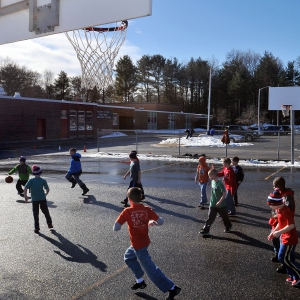 Three finalists named for Ryan Road School principal in Northampton
Three finalists named for Ryan Road School principal in Northampton
 Developer pitches new commercial building on Route 9 in Hadley
Developer pitches new commercial building on Route 9 in Hadley
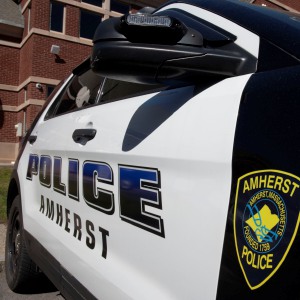 Two men dump milk, orange juice over themselves at Amherst convenience store
Two men dump milk, orange juice over themselves at Amherst convenience store
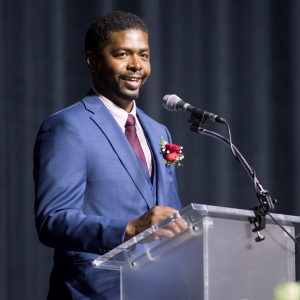 Sadiq to leave Amherst middle school principal role
Sadiq to leave Amherst middle school principal role
UMass spokesman Edward Blaguszewski said the university will work with the town. “We hope to discuss the strategy as to how to collaborate effectively over the course of the spring,” Blaguszewski said.
The university’s response began this week with a message that went to all students from Evelyn Ashley, associate vice chancellor and dean of students, with reminders about the code of student conduct, information about fire safety, hazing, and an overview of alcohol and other drug policies.
“Our hope is that these communications will provide students with information about how you can keep yourself safe and help those around you do the same,” Ashley wrote.
Ashley’s letter focused on the dangers of large volume alcohol consumption and how students’ health is impacted, pointing out that they are not getting accurate information from TikTok, where videos suggest recipes of mixing vodka with water and electrolytes, such as Gatorade or Pedialyte, will diminish hangovers and allow them to drink more.
“We’re really very much concerned about the misperceptions and misconceptions that are shared on social media,” Blaguszewski said. “We want to make sure the dangers of this activity are well known and understood.”
University officials hope their warnings will not only aid students’ health and well being, but also lessen the burden on health resources in the region. UMass will also be sharing communication with parents, and reaching out to students in other ways, such as digital signs around campus, advertisements on UMass Transit buses, and emails.
More important, Blaguszewski said, there will be direct, in-person conversations on campus, and outreach to student leaders.
Although UMass continues to have some of the same policies enacted beginning in 2015 for the Blarney Blowout, following a report by former Boston Police Commissioner Edward Davis, including prohibiting guests in dormitories and restricting parking, the event this year created more problems than in several years.
Bockelman said there is a belief that at least some of the participants traveled from up to two hours away. That was illustrated by some of the emergency calls, such as one where police found a college-age woman sleeping in a vehicle parked outside a downtown business, who said she was sleeping there because she couldn’t accompany a friend back to a dorm and was not ready to drive home.
In another case, a drunken man tried to force his way into a Northampton Road home, mistaking the residence for the hotel in Hadley at which he was staying.
Blaguszewski said UMass will be effective in focusing on students. “What we can control is our own campus,” Blaguszewski said.
Despite the large number of people on sidewalks and then crowded onto streets and in yards, Bockelman said, police showed incredible restraint on Saturday. He pointed to a situation on South Whitney Street where well over 1,000 people partied on the short road between Main and College streets.
By 11:36 a.m., when the street became unpassable for emergency vehicles, and loud music and liquor law violations were observed, the party was broken up.
The firefighters union praised the work of all who handled the drunken people.
“All Local 1764 members and mutual aid crews did an exceptional job and showed incredible professionalism despite the ever-increasing call volumes,” wrote Sarah Forsaith, president of Local 1764.
Bockelman said feedback from residents is that they were appalled by what they saw, with intoxicated people stumbling and carrying the ubiquitous plastic borgs.
Although Cooley Dickinson Hospital’s record for the number of medical transports in a 24-hour period was broken during the partying, there was little of the mayhem seen in the past, when revelers damaged bus stops, trees and vehicles, and were arrested for disorderly conduct.
“What we didn’t see is a significant amount of arrests, and no property damage,” Blaguszewski said.
Scott Merzbach can be reached at smerzbach@gazettenet.com.
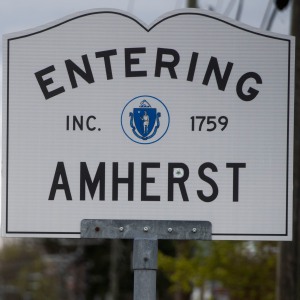 Intermittent rail trail closures expected in Amherst, Belchertown
Intermittent rail trail closures expected in Amherst, Belchertown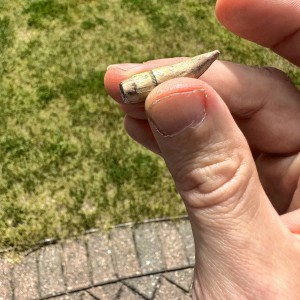 Fearful Belchertown residents blame stray bullets on nearby gun club, appeal to town for help
Fearful Belchertown residents blame stray bullets on nearby gun club, appeal to town for help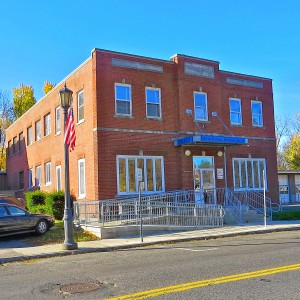 State: South Hadley’s fiber-optic revenues not public records
State: South Hadley’s fiber-optic revenues not public records 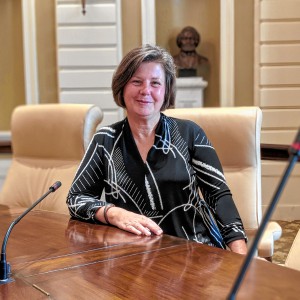 New federal mandate requires informed consent for sensitive exams
New federal mandate requires informed consent for sensitive exams
